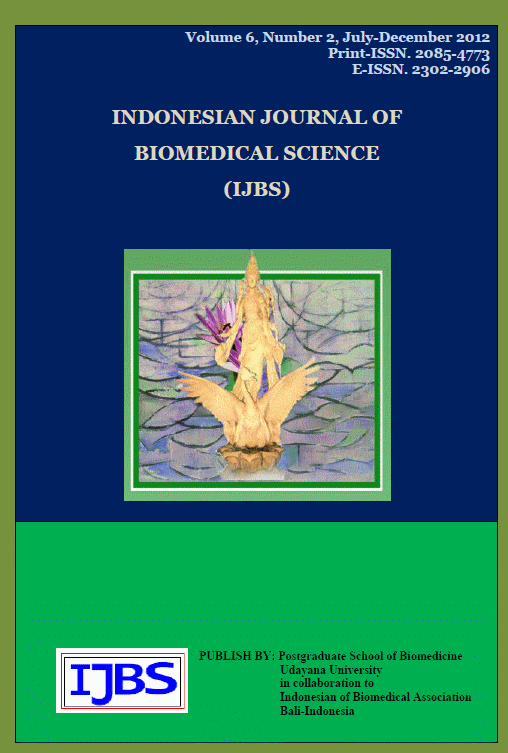FLOUXETINE IMPROVED INTRAVAGINAL EJACULATORY LATENCY TIME THROUGH DECREASED LEVELS OF INTERFERON-GAMMA AND INCREASED LEVELS OF SEROTONIN IN PATIENT WITH PREMATURE EJACULATION
Abstract
Pathophysiology of premature ejaculation (PE) is very complex because it is associated with many factors, which can be grouped into biological factors and psychological factors. Various diseases have been found correlate between psychological factors and biological factors through cytokines, one of which is IFN-g (IFN-g). IFN-g affect indolamine dioxygenase enzyme (IDO) and decrease levels of serotonin. Low levels of serotonin leads to PE. The purpose of this study was to prove the relationship of serotonin and IFN-g in pathophysiology of PE.
This study was designed as a pretest-posttest double-blind cross-over control group design. Patients with PE were divided into 2 groups: control group and treatment group. Treatment group received flouxetine 20 mg for 30 days. Then the control and treatment groups were crossed after passing a 14-days washout period. Previously as a control group to treatment group and received flouxetine 20 mg per day for 30 days. Before and after treatment in each group was examined the levels of serotonin and IFN-g.
Of the 26 subjects, each group there was 13 subjects. Flouxetine 20 mg per day for 30 days increased serotonin levels were significantly (p < 0.05), and decreased levels of IFN-g were significantly (p < 0.05). Increased levels of serotonin and decreased levels of IFN-g was significantly associated with improvements (intravaginal ejaculatory latency time) ejaculation in PE patient.
From these results it can be concluded that PE occurs because decreased levels of serotonin. Decreased levels of serotonin are associated with increased levels of IFN-g.
Keywords: PE, Serotonin, IFN-g.


